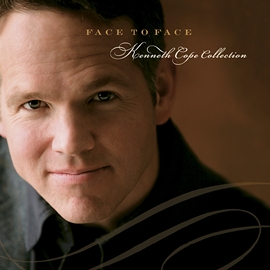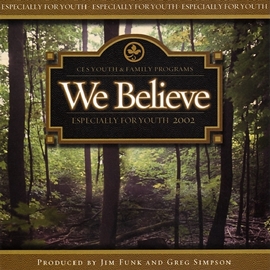(Continued from last week…)
Practice makes progress; Jesus makes perfect.
We talk about being humble, about acknowledging Christ’s hand in our success or development. But, do we think that this acknowledging our Savior is just a good idea? That it’s what humble people do? Perhaps it’s the thing to do because it’s the truth. The scriptures do say that every good thing comes to us because of Christ (Moroni 7: 20-24).
 In the hymn, “More Holiness Give Me” (Hymns, 131), if we really mean what we sing, we ask the Lord to give us more of all of these good traits: holiness, strivings within, patience in our suffering, sorrow for our sins, faith in the Savior, joy in serving Him, purpose in our praying, etc. Each of these attributes are not something we can materialize in ourselves by sheer will and intense effort. (That would be like one of us trying to fly by frantically beating our arms against the air.) No! These are gifts from God. The author of the song believed that. Do we, who sing it, believe it?
In the hymn, “More Holiness Give Me” (Hymns, 131), if we really mean what we sing, we ask the Lord to give us more of all of these good traits: holiness, strivings within, patience in our suffering, sorrow for our sins, faith in the Savior, joy in serving Him, purpose in our praying, etc. Each of these attributes are not something we can materialize in ourselves by sheer will and intense effort. (That would be like one of us trying to fly by frantically beating our arms against the air.) No! These are gifts from God. The author of the song believed that. Do we, who sing it, believe it?
Alma 38: 9, tells us that “only in and through Christ” can man be saved; and that He “is the life and the light of the world.” So…we are not our own life; we are not our own light. He gives this to us. If we are alive, it is by His power. If there is any light in us in this fallen world, it is by Him that it comes.
GOOD
I would like to go back to an idea that I mentioned two posts ago. A rich, young man ran up to Jesus and called Him “Good Master,” to which Jesus responded: “Why callest thou me good? There is none good but one, that is, God” (Mark 10: 17-18). Now, if we take Jesus’ words as truth, then we have to believe what He said, as well as what was unsaid…If only God is good, then Nephi, for instance, was not good. Hold on just a minute…I haven’t met Nephi, but I have had the opportunity for the last quarter of a century to travel among many of the members of the Church, and mingle in their excellent company. I have been privileged to meet many souls whom I would call “good.” Not throwing the term around lightly, I have found myself sincerely saying: “You are such a good person.” And, I am certain that if I knew Nephi while he was alive, I would have called him “good” as well, for I have felt, while reading his words, that he had great good in Him (which good came from Christ). However, according to the way Jesus was using the word “good” in this conversation with the young man, Nephi was not good; Joseph Smith was not good; the Prophets and Apostles are not good; you and I are not good.
But another scripture (Moroni 7: 5), tells us: “if their works [are] good, then they are good also.” And we must take all these scriptures together; they must all work in harmony. So perhaps none of us is “good” in the way that God is good, which is the way God wants us to eventually become. Perhaps Jesus was just saying that none of us here has reached that level of goodness yet.
Taking it a step further: perhaps Jesus could see into this young man’s heart (as He can see into yours and mine). Perhaps this young man was thinking that he was good enough, having been a keeper of the commandments since his youth. Well, maybe Jesus wanted to impress upon his mind that only God is finished; only God is good through and through. Only God is celestial. All the rest of us are deficient in goodness. All the rest of us are still in danger of potentially falling from grace (see D&C 20: 32).
Now, you (like the young rich man) may not see yourself as a sinner. You may view yourself as one of the ninety and nine “good” sheep, which could, I guess, cause you to decide that these writings just aren’t for you. And yet, if you really did view yourself as “good” and as one of the “ninety and nine,” I can think of two reasons why the ideas discussed here could benefit you. First, they might help you to become more aware that there are many other souls out there, all around you, (and they are God’s cherished children, your spiritual family) who sincerely do feel badly about themselves, who do see themselves as sinners, and who yearn for compassionate and understanding hearts surrounding them. And the second reason the doctrines herein could benefit you is plainly and simply this: You may just as well be a sinner after all, without realizing it…a “sinner” as the Lord uses the term; and you are probably not yet “good” as the Lord uses the term. Therefore, these doctrines could serve as an awakening to help you further along in your eternal progression. It could be that Jesus’ idea of “good” requires more of us than perhaps we have required of ourselves.
COME UNTO CHRIST
Jacob labored diligently to persuade us to “come unto Christ, and partake of the goodness of God” (Jacob 1:7). How do we partake of God’s goodness? He gives it to us through Christ. We can get it in no other way. There is none good but one, and that is God. And for God’s goodness to come into us, we must come unto Christ, for without Christ there could no good thing come to any of us (Moroni 7: 24). But through the grace of Christ—His divine help and strength—we grow from grace to grace into His fulness…His goodness. The Father, working through Jesus, transforms us, by degrees, into the image of His Son, unto “the measure of the stature of the fulness of Christ” (Ephesians 4: 13).
Which brings me to my final thought for today…I have repeatedly declared that Jesus gives us the capacity to do and be all good things. And someone may say, “Of course, we know that; it goes without saying.” But that’s the problem. It should never go without saying. Not for any of us! Besides, how we say it is a reflection of how we see it.
Therefore: “Praise the bridge that carried you over” (George Colman, the Younger).
 Christ is that bridge. He will carry us over the difficulty of this life into all good. And all the good that we already have has come to us because of Him. Should we not, therefore, joyfully and consistently express it?
Christ is that bridge. He will carry us over the difficulty of this life into all good. And all the good that we already have has come to us because of Him. Should we not, therefore, joyfully and consistently express it?
When you and I come to recognize that Jesus is truly the power behind all that is good in us, both in our desires as well as our actions, such expressions will naturally flow from us. And not just in our formal testimony meetings, but we will spontaneously speak of Him around the dinner table, in the car, and anywhere else where we may find ourselves in the company of those we love.
Jesus is the life and the light of your world! So, why not let your world know that you know it. :)
(to be continued…)































Perfect for this years youth theme:
Come unto Christ and be perfected in him, and deny yourselves of all ungodliness Mor 10:32 abr.
Hi Joseph! Wonderful to hear from you. I hope you are well. Keep coming to Christ. I believe in you, bro! :)
I was touched by your comment, “But that’s the problem. It should never go without saying.”
Great insight… as I can hear the Alleluia choir praising in my head.
Look forward to the next installment!
Thanks, Ken! So glad if it is useful in any way.
I hope you have a wonderful, Christ-filled week! :)
Thanks Kenneth!
I love you, Pauline! :)
Thank you so much for sharing !! Love your music and sweet spirit!! Thank you for your sharing your talents.
So kind of you, Dana! Thank you and may the Lord bless you. :)